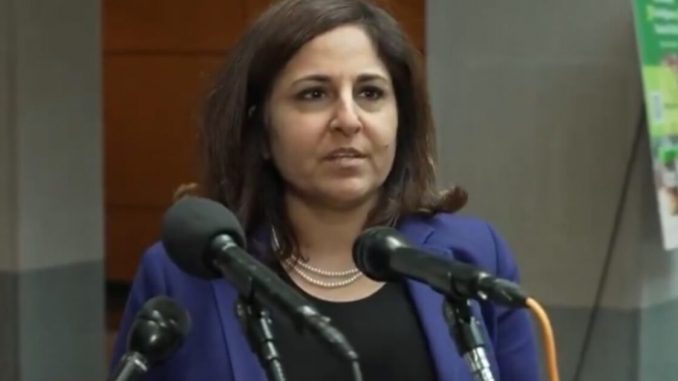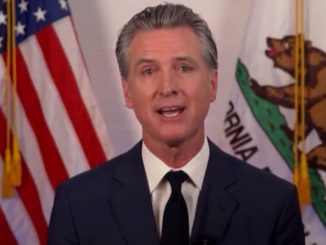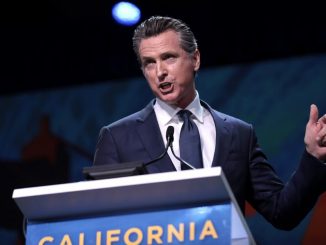
| Published August 2, 2025
Senior Biden aide Neera Tanden appeared before the House Oversight Committee to defend her authorization of the presidential autopen — a mechanical device used to sign official documents — during her White House tenure from October 2021 to May 2023.
Tanden testified under oath that every time she approved use of the autopen, President Joe Biden had personally signed off on it. “Every time I used the autopen … I had the president’s signature,” she told RealClearPolitics reporter Philip Wegmann, emphasizing there was no unauthorized use.
The statement comes amid increasing questions from Republicans over President Biden’s health and capacity to govern, especially following reports that Biden delegated critical signings while working a limited schedule. GOP members argue that the use of the autopen may reflect a cover-up about Biden’s true level of engagement, mental acuity, and daily decision-making.
Tanden, however, defended her actions as procedural and legitimate, insisting she followed established protocols. She said she was authorized to approve the autopen but was not always informed of who gave final clearance beyond her role — a detail Republicans seized upon as a potential oversight failure.
Outside the hearing, Democrats maintained that Tanden followed legal and historical norms, citing past presidents — including George W. Bush and Barack Obama — who also used autopen technology for time-sensitive legislation.
The issue has now escalated into a broader investigation, with Republicans demanding further testimony from other Biden staffers who may have insight into the internal approval chain. Critics argue that the lack of clarity over who was ultimately making decisions — or signing off — is part of a growing transparency problem within the Biden administration.
 Implications:
Implications:
Here are the key implications of Neera Tanden’s autopen testimony and its political, legal, and institutional significance:
⚖️ 1. Legal & Constitutional Implications
-
Presidential Authority Questioned: If Biden wasn’t directly approving autopen use every time — despite Tanden’s claim — it could raise legal concerns about the validity of presidential actions, including executive orders or legislation signed this way.
-
Potential Violation of the Presidential Records Act: If records were signed without Biden’s personal review, it could violate documentation standards tied to presidential decision-making and transparency.
🏛️ 2. Executive Function & Chain of Command Concerns
-
Blurred Lines of Delegation: Tanden admitted she didn’t always know who gave the final green light. This opens questions about who was actually making decisions in the White House — possibly unelected aides acting in the president’s name.
-
Undermines Perception of Biden’s Autonomy: The debate feeds existing speculation about President Biden’s mental and physical capacity to fulfill his role, especially as oversight intensifies in an election cycle.
🔍 3. Political Ramifications
-
Fuel for Republican Investigations: The GOP is likely to use this testimony as part of a broader narrative of executive dysfunction, potentially bolstering impeachment efforts or campaign messaging.
-
Pressure on Democrats: Biden allies now face mounting pressure to provide proof of the president’s cognitive fitness and leadership — including logs, memos, or further testimony from staffers.
-
Neera Tanden’s Credibility Under Fire: Her testimony, if contradicted by other staff or evidence, could erode her reputation and impact any future role she may play in Democratic leadership or public service.
📰 4. Institutional Norms & Trust in Governance
-
Public Trust in Executive Transparency Eroded: The idea that presidential authority may have been exercised by proxy, without full awareness of the public, damages institutional credibility.
-
Reinforces Concerns About the ‘Administrative State’: Critics argue this exemplifies how unelected officials wield disproportionate power — something populist and constitutionalist groups have long warned about.
🧭 5. Precedent & Historical Context
-
Raises New Questions About Autopen Use: While past presidents used it, those instances were clearly documented. This case may set a new precedent requiring stricter guidelines or even Congressional regulation of autopen policies.
-
Possible Reforms Ahead: Lawmakers on both sides may now push for clearer reporting protocols or audit trails for presidential signings — especially when a mechanical signature is involved.
 Overall Takeaway:
Overall Takeaway:
Neera Tanden’s testimony defending her use of the presidential autopen has intensified scrutiny over President Biden’s capacity, White House decision-making protocols, and the transparency of executive authority. While Tanden insists that Biden personally approved every use of the device, her admission of uncertainty about the final approval process has opened the door to political, legal, and institutional challenges.
The situation underscores broader concerns about delegated power, the role of unelected aides in high-level decisions, and the public’s trust in presidential governance. As investigations continue and pressure mounts for further disclosures, this controversy could reshape expectations for how presidential actions are authorized and documented, potentially prompting legislative or procedural reforms.
Ultimately, this case may serve as a litmus test for how much executive responsibility can be delegated — and how much oversight is necessary to preserve the integrity of the office of the President.
SOURCES: THE GATEWAY PUNDIT – Panicked Biden Aide Neera Tanden Now Claims “Every Time” She Used Autopen Joe Biden “Signed Off Himself”
FOX NEWS – Top Biden aide admits to Congress she directed autopen signatures without knowing who gave final approval
ABC 3340 NEWS – Neera Tanden defends use of presidential autopen, denies covering up Biden’s health





Be the first to comment